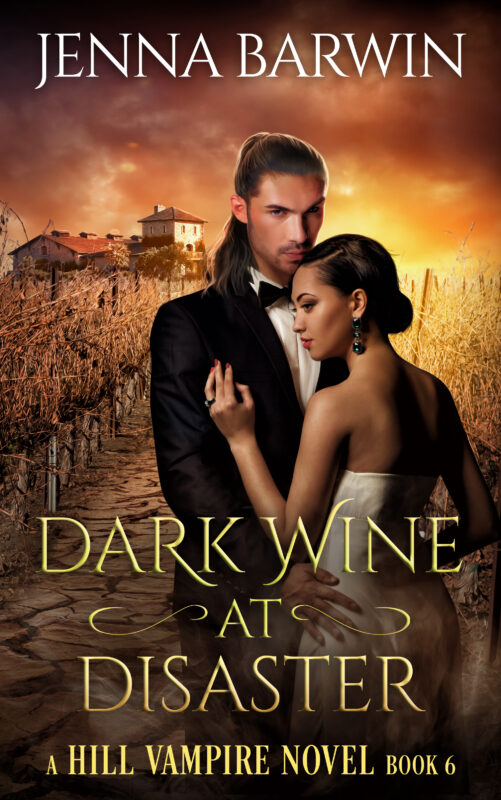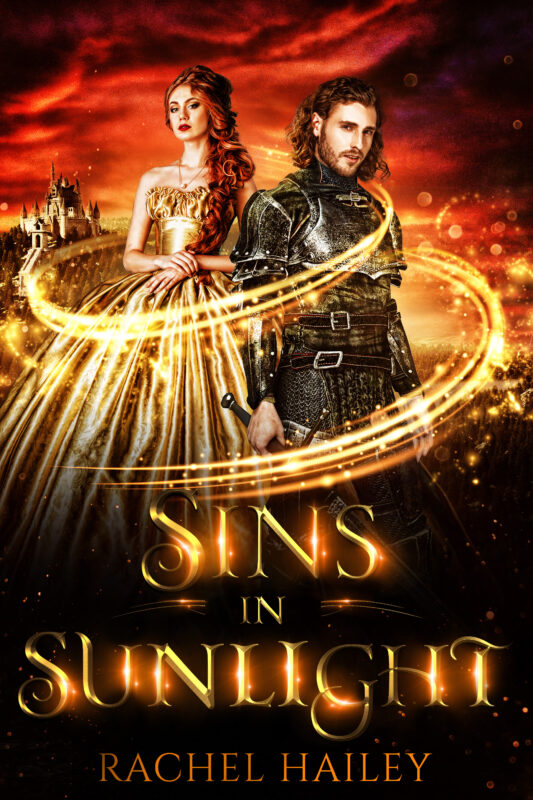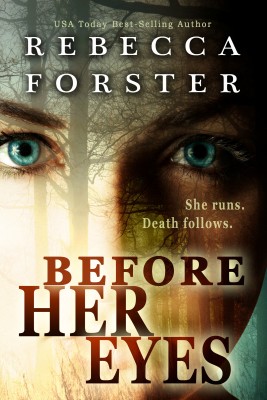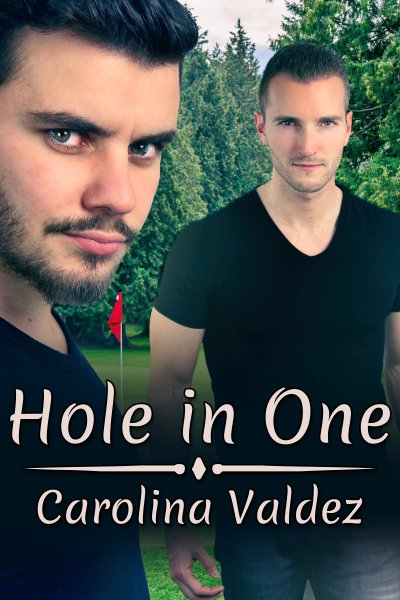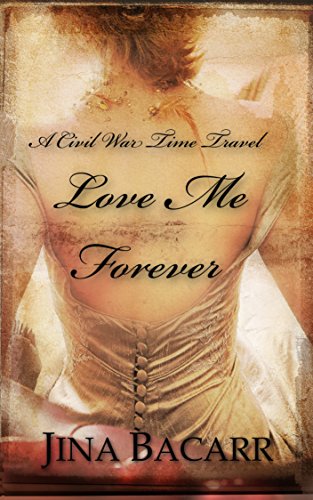A Break from Writing? Not Really.
August 6, 2023 by Linda O. Johnston in category Pets, Romance & Lots of Suspense by Linda O. Johnston tagged as Between drafts, finishing the book, Linda O. Johnston
What does a writer do between drafts of a story? Well, that depends.
I finished a first draft of my upcoming fourth story in my Shelter of Secrets series for Harlequin Romantic Suspense. It still needs some work, but it’s currently in the hands of my excellent beta reader.
So what am I doing while I’m waiting? I have another book under contract that I could begin, but for now I’m trying to play catch-up in some things I’ve been ignoring while I worked on that draft, and also attended the Romance Writers of America Conference.
I won’t get into what kinds of things they are, but they definitely needed to be worked on. Will I resolve them all now? Not hardly, but I hope to at least make a dent in them.
Meanwhile, I’m also making some preparations for Bouchercon, the mystery conference I’ll attend at the end of this month and beginning of September.
So how about you? Do you ever get a chance to take a break, however short, from your writing or your other kind of job? If so, how do you decide how to handle it?
I hope you’re more organized than I tend to be these days. But hey, I’m always amused when my interruptions come from my puppy!
Hope you all enjoy the last half of 2023. I intend to!
Some of Linda’s Novels
Hot Novels about the Cold War by Will Zeilinger and Janet Elizabeth Lynn
August 3, 2023 by Janet Elizabeth Lynn and Will Zeilinger in category Partners in Crime by Janet Elizabeth Lynn & Will Zeilinger tagged as 1050s, cold war, Janet Elizabeth Lynn, thrillers, Will Zeilinger
Janet and Will are taking a break this month. So we’re reruning a column they wrote in 2019. Hope you enjoy Hot Novels about the Cold War.
The genre of novels that seems to endure are the spy thrillers and stories of behind-the-scenes government scandals. Here are some very interesting and I’d even say, “watershed” novels about the cold war that have colored our vision of the past and the future. After researching some, I’ve made a list of just a few of the more influential titles and included a short synopsis of each:

Our Man in Havana (1958) by Graham Greene
First published in 1958, Our Man in Havana is an espionage thriller, a penetrating character study, and a political satire that still resonates to this day. Conceived as one of Graham Greene’s ‘entertainments,’ it tells of MI6’s man in Havana, Wormold, a former vacuum-cleaner salesman turned reluctant secret agent out of economic necessity. To keep his job, he files bogus reports based on Lamb’s Tales from Shakespeare and dreams up military installations from vacuum-cleaner designs. Then his stories start coming disturbingly true. (Goodreads)

The Ugly American (1958) by William J. Lederer and Eugene Burdick
A piercing exposé of American incompetence and corruption in Southeast Asia, The Ugly American captivated the nation when it was first published in 1958. The book introduces readers to an unlikely hero in the titular “ugly American”—and to the ignorant politicians and arrogant ambassadors who ignore his empathetic and commonsense advice. In linked stories and vignettes set in the fictional nation of Sarkhan, William J. Lederer and Eugene Burdick draw an incisive portrait of American foreign policy gone dangerously wrong—and how it might be fixed. The Ugly American reminds us that “today, as the battle for hearts and minds has shifted to the Middle East, we still can’t speak Sarkhanese” (New York Times).

The Spy Who Came in From the Cold (1963) by John le Carré
In this classic, John le Carre’s third novel and the first to earn him international acclaim, he created a world unlike any previously experienced in suspense fiction. With unsurpassed knowledge culled from his years in British Intelligence, le Carre brings to light the shadowy dealings of international espionage in the tale of a British agent who longs to end his career but undertakes one final, bone-chilling assignment. When the last agent under his command is killed and Alec Leamas is called back to London, he hopes to come in from the cold for good. His spymaster, Control, however, has other plans. Determined to bring down the head of East German Intelligence and topple his organization, Control once more sends Leamas into the fray—this time to play the part of the dishonored spy and lure the enemy to his ultimate defeat. (Goodreads)
It is interesting to note that each of these novels was later made into a motion picture. Our Man in Havana with Alec Guinness (1959), The Ugly American with Marlon Brando (1963), and The Spy Who Came in from the Cold with Richard Burton (1965).
As is the case with most things a writer encounters, great fiction will always be thrilling but many times the reality is scarier and more strange than we could ever write.
Some other novels set in the 50s
Jill Piscitello–One very talented Author!!
August 2, 2023 by Jann Ryan in category Jann says . . . tagged as Cozy mystery, mysteries Jill Piscitello is a teacher with a passion for writing and an avid fan of multiple literary genres. Although she divides her reading hours among several books at a time, a lighthearted story offering an escape from the real world can always be found on her nightstand.
Jill Piscitello is a teacher with a passion for writing and an avid fan of multiple literary genres. Although she divides her reading hours among several books at a time, a lighthearted story offering an escape from the real world can always be found on her nightstand.
A native of New England, Jill lives with her family and three well-loved cats. When not planning lessons or reading and writing, she can be found spending time with her family, traveling, and going on light hikes. Jill loves to try out new restaurants, but if truth be told, she will order a chicken Caesar salad wrap whenever possible.
I’m delighted to be talking with multi-talented author Jill Piscitello. Today she is going to share with us a bit about her writing life and her new release.
Jann: When did you first know you wanted to be a writer?
Jill: I enjoyed crafting stories as soon as I learned how to read. But it wasn’t until middle school that I considered the possibility of writing as a career. From a very young age, I had the voice of practicality ringing in my ears and went off in search of job choices more likely to pay the bills. Although writing still happened regularly, my first queries weren’t sent until I was well into my 40s.
Jann: What is your favorite genre to write? Tell us a little about your journey to publication.
Jill: Cozy mystery is my favorite genre to write. These books lend themselves well to series and allow me to follow a charming cast of characters as they develop over time. My first two published books were sweet, holiday romances. I love everything about Christmas and had so much fun writing both stories. Then I realized that a cozy mystery would allow me the best of both worlds in the form of a whodunit with a dash of romance.
Jill: Do you have to research a lot before you start writing your novels?
Jill: Research is key for so many pieces of every story. Pouring through resources is one of my favorite parts of the writing process. How to use the information is its own skill. For example, as a fiction reader, I’m not looking for a history lesson but want to feel like I’ve been dropped into a world set in during a specific time period.
Jann: How important is setting, theme and plot in your stories? Which one comes first when you start to write.
Jill: I suppose the answer to this question depends on the story. Setting plays a huge role in the beginning. I love writing about beautiful places. The theme usually presents itself right away, but the plot is a work in progress until the final page is written.
Jann: June 26, 2023, A Sour Note made its debut. What challenges did you set for your main character Maeve Cleary?
Maeve Cleary?
Jill: Maeve is a risk taker plagued by anxiety when things don’t go according to plan. She is learning to accept the highs and lows as learning curves, not mistakes. What’s life without a few risks? After quitting her job with zero prospects in sight and a shattered engagement, she returns to her childhood home. The discovery of a corpse, frivolous accusations, and navigating unsolicited advice from her type A mother and a clairvoyant cousin provide a welcome diversion from her upended personal life.
Jann: Where did the inspiration come from for A Sour Note?
Jill: My family and I vacation in Hampton Beach, NH every summer. A few years ago, I was walking along a stretch of beach with a view of the ocean and some stunning beach homes and realized how perfect the location was for my cozy mystery. Next, I needed to figure out a unique profession for my sleuth that would allow her the time needed to solve a mystery. When I heard about a local business offering music lessons and year-round performance opportunities, a rush of plot ideas revolving around various venues took shape.
Jann: What are you working on now? Can you tell us about your next project?
Jill: I’m currently working on the sequel to A Sour Note. The setting will remain in Hampton Beach, NH, but the new story will take place during the fall. I’m looking forward to experiencing the beach town outside the tourist season.
Jann: Where can we get your books?
Jann:. Do you have a website, blog, twitter where fans might read more about you and your books?
Website: https://jillpiscitello.com/
Facebook: https://www.facebook.com/jillpiscitelloauthor
Twitter: https://twitter.com/Piscj18
Instagram: https://www.instagram.com/jillpiscitellobooks/
GoodReads: https://www.goodreads.com/author/show/21978074.Jill_Piscitello?ref=nav_profile_l
BookBub: https://www.bookbub.com/profile/jill-piscitello?list=author_books
Amazon Author: https://www.amazon.com/author/jillpiscitello
Jann: What’s your favorite movie?
Jill: I adore It’s a Wonderful Life. The timeless message of everyone’s individual importance in this world, the close-knit community, and the cast warm my heart year after year. And I’ll opt for the black and white version every time.
Thanks Jill for sharing with us today. Good Luck with A Sour Note and I will be looking forward to the sequel. Happy Summer!!
Featured Author Renae Wrich
August 1, 2023 by marianne h donley in category Apples & Oranges by Marianne H. Donley, Featured Author of the Month tagged as Featured author, Mac and Cheese, renae Wrich

A born and raised Minnesotan, Renae Wrich is a lover of hot dishes, lakes, and snuggling up with a good book on a cold winter day. Renae holds a B.A. in English from the University of Minnesota Duluth. She lives in a suburb of Minneapolis with her husband and two children (who love macaroni and cheese). Mac and Cheese, Please, Please, Please is her first book.
Visit her website at www.renaewrich.com to learn more.
Dry Run
July 30, 2023 by Dianna Sinovic in category Quill and Moss by Dianna Sinovic tagged as fantasy, short fiction, writing
What was July but sun and heat and more sun? Terina wiped the droplets from her forehead and wished for the crisp days of October. Grunting slightly, she pushed the wooden cart forward. In the noon warmth, she wanted to simply lie down in the shade beneath it and nap the afternoon away. But she was due in Ladenville before dark, to set up for the next day’s festival.

It had been more than two years since she’d attended the festival, and she didn’t recognize the harsh landscape that surrounded her: the dry grasses, the trees whose leaves were mostly wrinkled and yellow, the dusty creek beds. It should have been a verdant season, but a drought had sucked the life out of the countryside.
Her own hamlet, miles back, was a lucky oasis still green and lush.
Had the townsfolk of Ladenville not spoken to their resident merlin? Bade him summon the rain beasts?
A man carrying a burlap bag over his shoulder approached Terina on the path. Sweat soaked his shirt. He nodded at her and she nodded back.
“Sir, can you spare the time for a short question?” Terina wiped her forehead again.
“Aye,” the man said, but stood away from her, cautious.
“I am several years away from this land, headed to the Brine Festival. Why such dryness?”
The man frowned and spat at the ground. “Our merlin passed on more than a year gone now, and no one left has the knowledge to call the rain.”
Eyes wide, Terina tried to imagine such a scenario. “The Fates are often fickle. My sympathies, sir.”
He nodded again and went on down the path.
Rummaging in her pack, Terina pulled out a flask of water and sipped; the aridness made her thirsty. She contemplated her next steps: Maybe the Brine Festival was a bad idea. Drought made people irritable and less likely to spend their coins. When she slipped the flask back into her pack, her hand brushed the bottle of elixir.
Uncorking it, she sniffed the sweetness of ripe berries. She knew only a brief sketch of the rain ritual—not being a full-fledged merlin, but it was worth a try. She held the bottle above her head, letting the desiccating breeze lift the scent upward.
“Iniye ab-wo neq,” she recited. There was another step that she tried to remember. A tuft of sedge? A handful of creek mud? The small rill that crossed her path contained neither. Every creek stone she turned over yielded only hard, cracked earth.
Digging again in her pack, Terina located the peach she’d squirreled away for a snack. Soft with ripeness, the fruit might work. Holding the peach aloft as she had the elixir, she squeezed it until the juices ran down her arms and dripped to the ground.
She repeated the incantation and waited several moments.
In the deep blue of the sky, the smallest of cumulous clouds popped up.
She waited again, this time for the cloud to spawn more clouds. But the cumulous remained solitary.
With a sigh, Terina cleaned the juice from her arms and closed her pack. Pushing hard against the cart, she persuaded it to roll onward, to the north and east, toward Ladenville.
Behind her, as her one step became ten, and then stretched to a quarter mile, the water vapor in the blazing heavens condensed. Thunderheads mushroomed and spread, cutting off the sun. And the rain beasts rumbled long and low.
More of Dianna’s Stories
Affiliate Links
A Slice of Orange is an affiliate with some of the booksellers listed on this website, including Barnes & Nobel, Books A Million, iBooks, Kobo, and Smashwords. This means A Slice of Orange may earn a small advertising fee from sales made through the links used on this website. There are reminders of these affiliate links on the pages for individual books.
Search A Slice of Orange
Find a Column
Archives
Featured Books
HOLE IN ONE
By day they had been fierce rivals in a collegiate golf competition, but at night . . .
More info →Newsletter
Contributing Authors
Search A Slice of Orange
Find a Column
Archives
Authors in the Bookstore
- A. E. Decker
- A. J. Scudiere
- A.J. Sidransky
- Abby Collette
- Alanna Lucus
- Albert Marrin
- Alice Duncan
- Alina K. Field
- Alison Green Myers
- Andi Lawrencovna
- Andrew C Raiford
- Angela Pryce
- Aviva Vaughn
- Barbara Ankrum
- Bethlehem Writers Group, LLC
- Carol L. Wright
- Celeste Barclay
- Christina Alexandra
- Christopher D. Ochs
- Claire Davon
- Claire Naden
- Courtnee Turner Hoyle
- Courtney Annicchiarico
- D. Lieber
- Daniel V. Meier Jr.
- Debra Dixon
- Debra H. Goldstein
- Debra Holland
- Dee Ann Palmer
- Denise M. Colby
- Diane Benefiel
- Diane Sismour
- Dianna Sinovic
- DT Krippene
- E.B. Dawson
- Emilie Dallaire
- Emily Brightwell
- Emily PW Murphy
- Fae Rowen
- Faith L. Justice
- Frances Amati
- Geralyn Corcillo
- Glynnis Campbell
- Greg Jolley
- H. O. Charles
- Jaclyn Roché
- Jacqueline Diamond
- Janet Lynn and Will Zeilinger
- Jeff Baird
- Jenna Barwin
- Jenne Kern
- Jennifer D. Bokal
- Jennifer Lyon
- Jerome W. McFadden
- Jill Piscitello
- Jina Bacarr
- Jo A. Hiestand
- Jodi Bogert
- Jolina Petersheim
- Jonathan Maberry
- Joy Allyson
- Judy Duarte
- Justin Murphy
- Justine Davis
- Kat Martin
- Kidd Wadsworth
- Kitty Bucholtz
- Kristy Tate
- Larry Deibert
- Larry Hamilton
- Laura Drake
- Laurie Stevens
- Leslie Knowles
- Li-Ying Lundquist
- Linda Carroll-Bradd
- Linda Lappin
- Linda McLaughlin
- Linda O. Johnston
- Lisa Preston
- Lolo Paige
- Loran Holt
- Lyssa Kay Adams
- Madeline Ash
- Margarita Engle
- Marguerite Quantaine
- Marianne H. Donley
- Mary Castillo
- Maureen Klovers
- Megan Haskell
- Melanie Waterbury
- Melisa Rivero
- Melissa Chambers
- Melodie Winawer
- Meriam Wilhelm
- Mikel J. Wilson
- Mindy Neff
- Monica McCabe
- Nancy Brashear
- Neetu Malik
- Nikki Prince
- Once Upon Anthologies
- Paula Gail Benson
- Penny Reid
- Peter Barbour
- Priscilla Oliveras
- R. H. Kohno
- Rachel Hailey
- Ralph Hieb
- Ramcy Diek
- Ransom Stephens
- Rebecca Forster
- Renae Wrich
- Roxy Matthews
- Ryder Hunte Clancy
- Sally Paradysz
- Sheila Colón-Bagley
- Simone de Muñoz
- Sophie Barnes
- Susan Lynn Meyer
- Susan Squires
- T. D. Fox
- Tara C. Allred
- Tara Lain
- Tari Lynn Jewett
- Terri Osburn
- Tracy Reed
- Vera Jane Cook
- Vicki Crum
- Writing Something Romantic
Affiliate Links
A Slice of Orange is an affiliate with some of the booksellers listed on this website, including Barnes & Nobel, Books A Million, iBooks, Kobo, and Smashwords. This means A Slice of Orange may earn a small advertising fee from sales made through the links used on this website. There are reminders of these affiliate links on the pages for individual books.














































